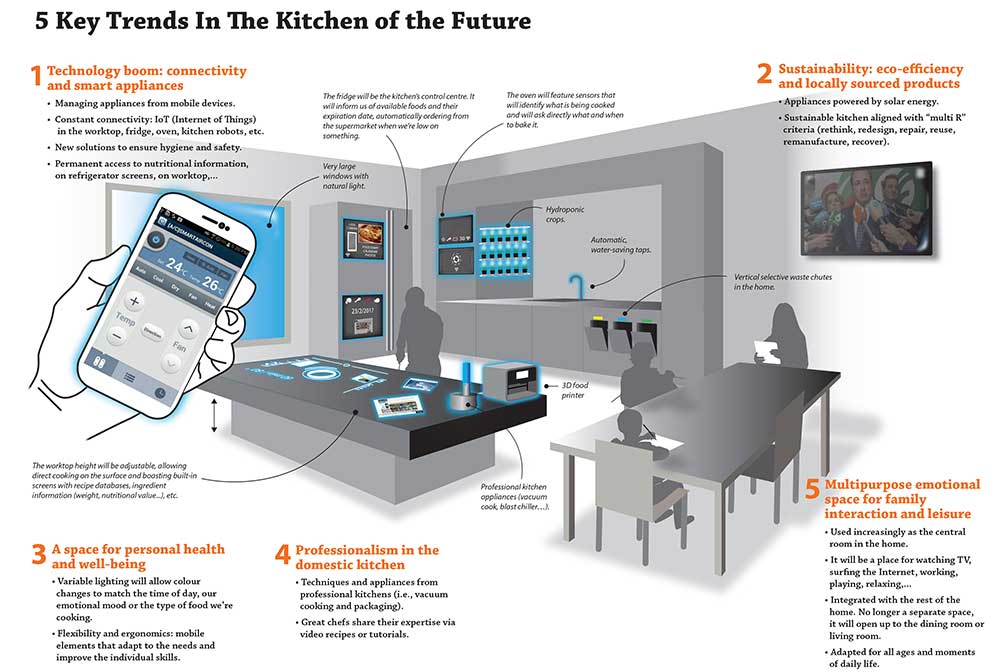The kitchen of the future will be ‘hyper-connected’ and multifunctional, according to a new report.
The ‘Global Kitchen: The Home Kitchen in the Era of Globalisation’ report from the Silestone Institute, which is part of Cosentino Group, asked 17 experts, from the worlds of design, cookery, domestic technology, sociology, nutrition and sustainability, for their views on the kitchen of the future.
Top predictions included a ‘hyper-connected’, multifunctional space that would focus on work, leisure, health and relaxation.
The professional kitchen trend was expected to continue, with kitchens incorporating more techniques and smart devices used by chefs, such as sous vide.
Designs would continue to take aesthetics and function into account, but would also consider their emotional value, with the space being used to promote relaxation and well-being.
Connectivity, it said, would be a growing trend, with smart appliances being managed from mobile and wearable devices.
Worktops would become more interactive, as experts anticipated that they would be able to cook, make calls, broadcast TV, provide access to the internet, weigh food and store recipe databases where chefs would guide users through the cooking method.
Sustainability would also be a key trend, with solar-powered appliances that will align with ‘multi-R’ thinking – Rethink, Redesign, Repair, Reuse, Remanufacture, Recover – expected to come to the fore.
Key experts included two-starred Michelin chef Andoni Luis Aduriz of Mugaritz, chef Gaston Acurio, Harvard anthropologist Richard Wrangham, architect Piero Lissoni and industrial designer Patricia Moore.
Santiago Alfonso, marketing vice-president for the Cosentino Group commented: “Global Kitchen is an international project providing valuable insights into the kitchen of the future and aims to become an essential reference tool for professionals and consumers. It creates the opportunity for multidisciplinary reflection to analyse the effect of globalisation on kitchen architecture and design, to determine how this space will develop over the next 25 years.”
